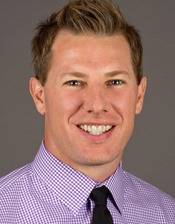Expanding the Scope of the Medical Physics Profession: Developing and Examining Patient-Facing Roles and Responsibilities
T Atwood1*, J Burmeister2*, S Geneser3*, D Brown4*, (1) UC San Diego, La Jolla, CA, (2) Wayne State University School of Medicine, Detroit, MI, (3) University of Washington, Seattle, WA, (4) University of California, San Diego, La Jolla, CA
Presentations
4:42 PM The Physicist’s Role in Patient-Centered Communication - J Burmeister, Presenting Author
4:54 PM Implementing Patient Physics Consults: The University of Washington Experience - S Geneser, Presenting Author
5:06 PM A Clinical Communication Skills Development Program for Medical Physicists - D Brown, Presenting Author
5:18 PM Audience Q&A - T Atwood, Presenting Author
TH-F-TRACK 1-0 (Thursday, 7/29/2021) 4:30 PM - 5:30 PM [Eastern Time (GMT-4)]
Patients routinely view diagnostic imaging studies and radiation therapy as complicated medical procedures. Misconceptions about radiation and confusion surrounding complex imaging and treatment equipment frequently result in patients having questions or concerns about the technical aspects of their care. These circumstances can result in patient-related distress and anxiety, delay the imaging necessary for a diagnosis, and even negatively impact outcomes, particularly in the case of radiation therapy.
Medical physicists are uniquely qualified to address patient questions and concerns related to the technical aspects of their care. The current training paradigm for imaging and therapy medical physicists produces analytical patient-care professionals with a propensity for problem solving. This training also instills a comprehensive understanding of the science and technology that dominate the fields of diagnostic imaging and radiation therapy. Expanding this education and knowledge to also include formal training in patient communication will allow medical physicists to further expand their roles to directly impact patient care.
This symposium will discuss new roles for medical physicists, where they establish independent professional relationships with radiation oncology patients. Speakers from institutions of different sizes and practice environments will discuss how new patient-facing roles are utilized to improve the patient experience, increase the quality of patient care, and facilitate new responsibilities. In addition, the role of the Medical Physics 3.0 Committee in promoting and training medical physicists for new responsibilities in direct patient care will be discussed.
Learning Objectives:
1. To outline the benefits of medical physicists establishing independent professional relationships with patients
2. To explore how current patient-facing initiatives are increasing the quality of patient care and facilitating new patient care responsibilities
3. To understand the role of the Medical Physics 3.0 Committee in promoting and training medical physicists for new patient-facing responsibilities
Keywords
Not Applicable / None Entered.
Taxonomy
Not Applicable / None Entered.
Contact Email











